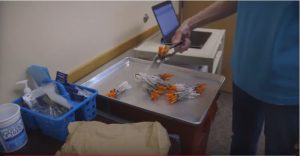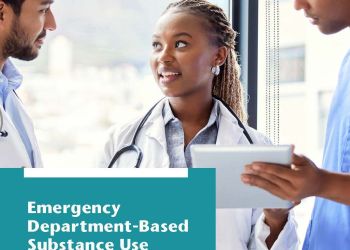The Centers for Disease Control and Prevention (CDC) estimates nearly 2.4 million Americans are living with the hepatitis C virus (HCV), with transmission via injection drug use being the most common mode of HCV acquisition. In Washington State, there has been a 126% increase in newly acquired HCV infections between 2013 and 2017 that is linked to the opioid crisis. In 2018, Whatcom County had approximately 13 acute HCV cases and 306 chronic HCV cases, an increase from 4 acute and 241 chronic in 2017. On July 26, 2019, in response to these increasing numbers, Washington Governor Jay Inslee launched the Hep C Free Washington Plan to Eliminate Hepatitis C in Washington State by 2030, expanding upon a 2018 proclamation calling for a coordinated strategy between state and local public health agencies, tribal governments, and other partners to eliminate hepatitis C.
Expanding prevention and screening services and increasing access to treatment are critical to Washington’s efforts to eliminate hepatitis C, yet many barriers exist for people who inject drugs (PWID) when trying to access care and needed services. Opioid misuse is a complex issue that requires a multifaceted, collaborative approach across disciplines and agencies. The Whatcom County Health Department (WCHD) is working to expand its Syringe Services Program (SSP) and Adult Health Clinic services to address the hepatitis C challenges. By expanding our services, we hope to provide our clients with the resources they need to make informed decisions regarding their health and to encourage testing and treatment for people who are living with hepatitis C.
Syringe Services Program
SSPs are shown to be safe, effective, and play an important role in reducing the transmission of viral hepatitis and other infections. The WCHD SSP is a community-based prevention program that can provide a range of services, including access to clean syringes, safe disposal of syringes, testing for infectious diseases, and linkage to treatment services. Hepatitis A and B vaccines are also available.
The WCHD started its SSP to combat the disease transmission of HCV, HIV, and other infectious diseases among PWID. The number of participants served has increased fourfold since 2009, from 219 unique participants to 881 in 2018.
Participants in our SSP reported stigma as the most common reason for avoiding medical care. We work towards a no-judgment approach to help build a trusting relationship with our clients, which is crucial in the participant’s road to change and healthy outcomes.
The increasing number of unique participants has forced our SSP to change what we ask our clients, how we test, when we test, clinic flow, and how we provide follow up services and referrals. We made changes to our dialogue with clients to facilitate a more engaging conversation and achieve a positive rapport. Our clinic flow is set up to create a safe comfortable space that allows for point of care testing in all of our exchange rooms. Clients often reported time restrictions as a barrier to testing and this change has helped us to provide testing and results in a more timely manner to meet client needs.
A standing order was approved to draw confirmatory HCV RNA testing for any of our clients that are reactive for the point of care HCV antibody test or who have received a reactive test with us in the past with no additional follow up or linkage to care. By providing confirmatory testing we can help clients document chronic HCV and initiate treatment sooner. Clients are more likely to be compliant with care if services can be provided in one centralized location.
SSPs are a tool that can help reduce transmission of viral hepatitis and other infections as well as serve as a bridge to other healthcare or treatment services. Program participants have reported that our services decrease needle reuse and sharing. This in turn helps to reduce disease transmission in our community.
Linkage to Care
Follow-up testing and linkage to care is essential for clients with a new diagnosis, but understanding the next steps for follow-up can be challenging. Our SSP program staff met with a local community health clinic about the potential to expedite referrals that screen reactive to HCV at our SSP. We worked on creating a process that ensured the appropriate testing and linkage to care happened in a timely manner. The community health clinic created a flow sheet, standing orders for HCV testing, and signed a Memorandum of Understanding (MOU) for this process. This MOU allows expedited referrals for better client outcomes.
 By Nicole Miller, MSN, RN; Lela Riherd, BSN, RN, CIC; Zac Doobovsky, BSN, RN, CIC; and Harp Cheema, BSN, RN, Whatcom County Health Department (WA)
By Nicole Miller, MSN, RN; Lela Riherd, BSN, RN, CIC; Zac Doobovsky, BSN, RN, CIC; and Harp Cheema, BSN, RN, Whatcom County Health Department (WA)

